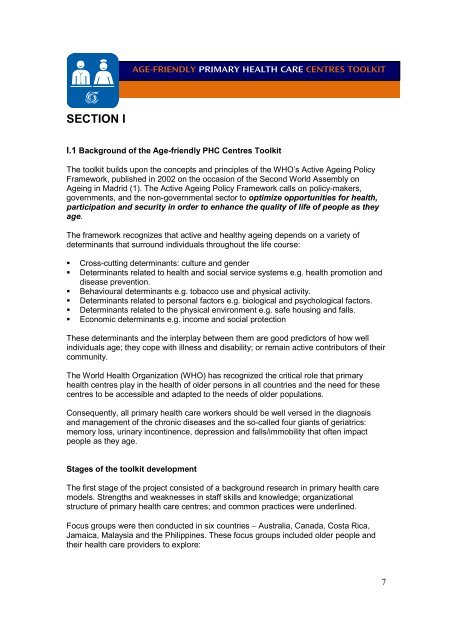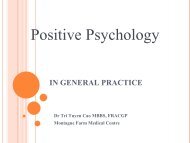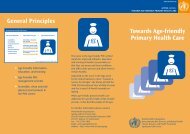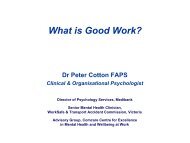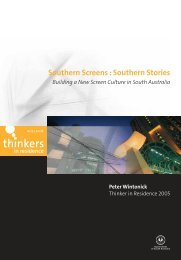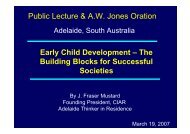Age-friendly Primary Health Care Centres Toolkit - World Health ...
Age-friendly Primary Health Care Centres Toolkit - World Health ...
Age-friendly Primary Health Care Centres Toolkit - World Health ...
- No tags were found...
Create successful ePaper yourself
Turn your PDF publications into a flip-book with our unique Google optimized e-Paper software.
AGE-FRIENDLY PRIMARY HEALTH CARE CENTRES TOOLKITSECTION II.1 Background of the <strong>Age</strong>-<strong>friendly</strong> PHC <strong>Centres</strong> <strong>Toolkit</strong>The toolkit builds upon the concepts and principles of the WHO’s Active <strong>Age</strong>ing PolicyFramework, published in 2002 on the occasion of the Second <strong>World</strong> Assembly on<strong>Age</strong>ing in Madrid (1). The Active <strong>Age</strong>ing Policy Framework calls on policy-makers,governments, and the non-governmental sector to optimize opportunities for health,participation and security in order to enhance the quality of life of people as theyage.The framework recognizes that active and healthy ageing depends on a variety ofdeterminants that surround individuals throughout the life course:Cross-cutting determinants: culture and genderDeterminants related to health and social service systems e.g. health promotion anddisease prevention.Behavioural determinants e.g. tobacco use and physical activity.Determinants related to personal factors e.g. biological and psychological factors.Determinants related to the physical environment e.g. safe housing and falls.Economic determinants e.g. income and social protectionThese determinants and the interplay between them are good predictors of how wellindividuals age; they cope with illness and disability; or remain active contributors of theircommunity.The <strong>World</strong> <strong>Health</strong> Organization (WHO) has recognized the critical role that primaryhealth centres play in the health of older persons in all countries and the need for thesecentres to be accessible and adapted to the needs of older populations.Consequently, all primary health care workers should be well versed in the diagnosisand management of the chronic diseases and the so-called four giants of geriatrics:memory loss, urinary incontinence, depression and falls/immobility that often impactpeople as they age.Stages of the toolkit developmentThe first stage of the project consisted of a background research in primary health caremodels. Strengths and weaknesses in staff skills and knowledge; organizationalstructure of primary health care centres; and common practices were underlined.Focus groups were then conducted in six countries − Australia, Canada, Costa Rica,Jamaica, Malaysia and the Philippines. These focus groups included older people andtheir health care providers to explore:7


